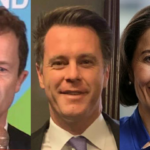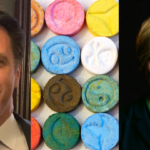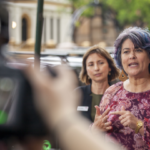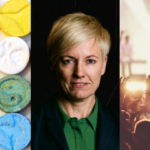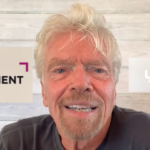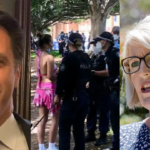Premier Minns, All NSW Wants for Christmas Is Drug Decriminalisation
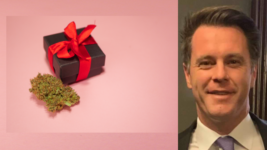
The transition from 11 years of Liberal Nationals governance in NSW to that of a Labor government, following the March state election, has all been smooth sailing, as the new administration hasn’t attempted to rock the boat in any way in terms forging new and divergent law and policy reforms.
The major parties that once presented a semblance of two different positions have since closed the gap between outlooks, which has nowhere been evidenced in any greater way than when NSW premier Chris Minns has addressed the issue of drug law reform since taking office.
As NSW Greens MLC Cate Faehrmann has pointed out, NSW Labor ran on an election platform that included holding a drug summit prior to the last two state ballot turnouts, yet when Murdoch pushed him on the issue of drug decriminalisation in August, he tucked his tail between his legs.
Minns pulled back on the suggestion that drug decriminalisation was on the agenda and, all of a sudden, the summit was pushed back to late in the current term, which left the Uniting Church NSW.ACT outraged after it has been progressing the Fair Treatment decrim campaign since 2018.
But in the midst of this leadership crisis, which again has shown that what a pollie considers possible prior to election changes once victorious, Virgin entrepreneur Richard Branson added a positive spin to the issue last month, when he pointed out that decriminalisation has become law in the ACT.
Reducing drug harms
Decriminalisation is a policy position that involves the removal of criminal penalties for personal use and possession of any psychoactive substance categorised as illicit under the current system of drug prohibition, in acknowledgement that punishing people who use drugs is counterproductive.
Such policy in NSW would involve the removal of the criminal offence of drug possession contained within section 10 of the Drug Misuse and Trafficking Act 1985 (NSW), which carries 2 years imprisonment or a $2,200 fine if a person is found to be in possession of a small amount of a drug for personal use.
Schedule 1 of the Act contains a list of over 200 illegal drugs, plants, precursors and reagents, with an accompanying breakdown of the quantity limit of each substance that results in a greater sanctioning if found in possession.
Anything under the listed traffickable amount of a substance is considered a personal quantity.
The policy of decriminalisation serves to reduce the harms associated with drug use, as often the most devastating outcomes a person charged over personal possession can face are the impacts relating to the criminal charge itself and not any negative health outcomes.
Although drug decriminalisation continues to raise eyebrows, especially amongst constituents who have never known anything else but prohibition, which has long been presented as not simply the only solution to the issue of drug use in the community but also, the moral stance to abide by.
The Portuguese success
A highly successful model of drug decriminalisation has been operating in in Portugal since 2001. At the time the Portuguese removed criminal sanctions for personal drug use, the nation was reeling from the impact of 1 percent of its population then being dependent on heroin.
Rather than take people into police custody in relation to their use of drugs, Portuguese authorities now send those who are found in possession of a 10 day supply or less of an illicit substance to a dissuasion panel, which is comprised of a doctor, a lawyer and a social worker.
A Commission for the Dissuasion of Drug Addiction panel can recommend that a person found in possession of a personal amount pays a minor fine or that they attend drug treatment or that no consequences are forthcoming. And over 80 percent of those appearing receive no penalty.
And two decades since the country, which is prone to an enhanced drug supply due to its position on the European drug smuggling route, began treating drug use as a health issue and not a crime, the issue of drug dependency is down, as are drug-related overdoses and HIV rates.
Harm Reduction Australia ambassador Dr Alex Wodak has stressed that the success of the Portugal model does not rest solely on the removal of criminal penalties against people who use drugs, but it equally depends upon greater provision of drug treatment and rehabilitation for those in need.
Just across the border
Launched in 2018, Fair Treatment has called for drug decriminalisation to be rolled out in NSW and the ACT, and not only is it notable that Uniting is leading the call but further it has a list of over 70 partner organisations, which conveys that the desire for such reform is fast becoming mainstream.
These other civil society organisations include the NSW Bar Association, Australia Community Workers Association, Community Legal Centres NSW, the NSW Council for Civil Liberties, Australian Lawyers for Human Rights and Human Rights Watch.
The campaign launch was co-hosted by The Global Commission on Drug Policy commissioner Richard Branson, who again took a moment in November to record a video message in which he congratulated the ACT for having successfully established drug decriminalisation in October.
“But more needs to be done and I can’t wait to hear when NSW has held its long promised drug summit and listened to the evidence about sensible, compassionate and effective drug laws,” the entrepreneur directed towards Minns. “It’s time to decriminalise now and put people’s health first.”
A Labor Greens government voted in favour of rolling out a system of drug decriminalisation in the capital late last year, and these laws took effect on 28 October, which means that those found with a personal quantity of any of eleven illegal drugs will either receive a fine or a treatment notice.
Indeed, amongst the fallout from Minns’ shirking on his election reform promises, Branson made clear that rather than lamenting the backflip of the NSW Labor leadership, one should be congratulating forward-thinking ACT MLAs for having progressed half of the campaign goal.
Where those fear to tread
“Labor has promised to hold a drug summit” in the lead up to the last elections, “just like Bob Carr did back in 1999”, yet unlike his predecessor, Minns has since backed away from the controversial policy area, Faehrmann recently told Sydney Criminal Lawyers.
The Greens drug law reform spokesperson further explained that the Murdoch press had purposefully ran some sensationalist articles about the upcoming ACT decriminalisation rollout in August that backed the premier into a corner leading him to trumpet the tired old conservative line.
In automatically falling back on the same “just say no” approach as his predecessors Dominic Perrottet and Gladys Berejikilian, Minns further let down a number of key NSW Labor politicians who’d been vocally supporting and promising drug law reform on being elected in to office.
Faehrmann has introduced decriminalisation legislation into state parliament in the past, and she currently has new legislation progressing a similar agenda on notice, while the arrival of Legalise Cannabis MLC Jeremy Buckingham post-election reflects further pro-reform sentiment in office.
As a sign of their opposition to the direction premier Minns has been taking on the issue of drug decriminalisation and holding a summit, those who attended the first NSW Drug Summit of 1999 held a forum at NSW parliament late last month to remind government of the initial success.
“We have to take all of our politicians on this journey. That is why we are calling for a multiday parliamentary summit where all MPs are invited to take part,” Dr Marianne Jauncey, medical director of the Uniting Medically Supervised Injecting Centre, told the press following the forum.
“They can hear firsthand the evidence in order to give them the courage and the experience and the wisdom to be able to make change.”


